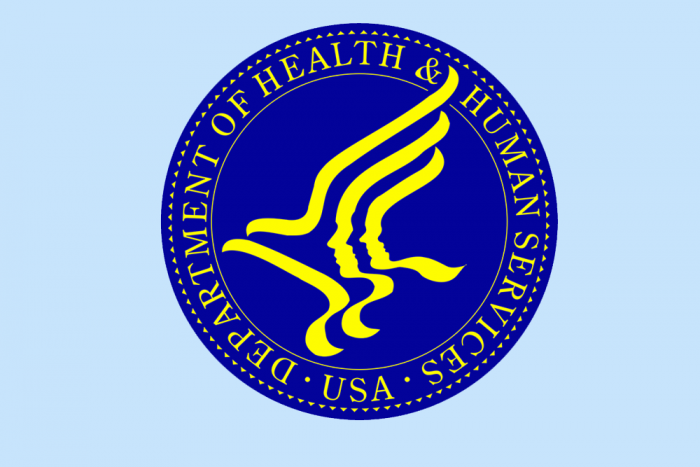COVID
Federal COVID-Related SUD Grants to Continue While Courts Consider Request for Temporary Restraining Order

The Pennsylvania Department of Drug and Alcohol Programs (DDAP) notified single county authorities (SCA) that it will continue to distribute federal COVID-related grant funding to SCAs while the US District Court considers a 23-state lawsuit seeking an emergency temporary restraining order against US Health and Human Services Secretary Robert F. Kennedy Jr. for abruptly terminating COVID-grant funds that were appropriated for use for states until September 30, 2025. Those grant funds include a supplemental to the Substance Use Disorder Block Grant. The lawsuit was filed on April 1.
Though not confirmed, media reports suggest the termination of grants could cost the Pennsylvania Department of Health $301 million, along with an additional $28 million or more hit against DDAP.
DDAP had been using these grant funds to expand testing and provide resources for COVID; support providers and help meet local needs during the pandemic; and expand the substance use disorder prevention, intervention, treatment, and recovery support services continuum, including various evidence-based services and supports for individuals, families, and communities.
PA Among 23 Plaintiffs Suing US HHS Secretary RFK Jr. Over Termination of COVID Grants
Governor Shapiro and Pennsylvania are listed along with 22 other plaintiffs in a lawsuit filed in US District Court in Rhode Island, requesting an emergency temporary restraining order against US Health and Human Services (HHS) Secretary Robert F. Kennedy Jr. for abruptly terminating COVID-grant funds, including a supplemental to the Substance Use Disorder Block Grant, that were appropriated for use for states until September 30, 2025.
Though not confirmed, media reports suggest the termination of grants could cost the Pennsylvania Department of Health $301 million, along with an additional $28 million or more hit against the Pennsylvania Department of Drug and Alcohol Programs (DDAP).
DDAP had been using these grant funds to expand testing and provide resources for COVID; support providers and help meet local needs during the pandemic; and expand the substance use disorder prevention, intervention, treatment, and recovery support services continuum, including various evidence-based services and supports for individuals, families, and communities.
DDAP is examining its options to maintain the full array of services offered by single county authorities and their providers to ensure Pennsylvanians continue to receive the lifesaving supports they need.
The factual allegations and legal background in the lawsuit state that during the COVID-19 pandemic, Congress appropriated substantial funds to strengthen public health programs that were not tied to the duration of the public health emergency. HHS and Congress continued to make these public health funds available after the end of the pandemic.
On Monday, March 24, with no advance notice, HHS abruptly terminated $11 billion in grants and cooperation agreements funded by appropriations from COVID-related laws. States were notified through letters from the Substance Abuse and Mental Health Administration (SAMHSA). The letters indicated the grants were issued for a limited purpose: to ameliorate the effects of the pandemic. The end of the pandemic provides cause to terminate COVID-related grants. Now that the pandemic is over, the grants are no longer necessary.
The lawsuit goes on to state the terminations have caused and will continue to cause irreparable harm and asks the court to vacate and set aside the termination of the funding and any other further actions taken by US HHS to implement or enforce them, among other requests.
RCPA Member Chestnut Ridge Using New State, Federal Programs to Expand Services | Helping the Helpers
CMS Issues FAQ on How Contractors Will Conduct Medical Reviews After COVID PHE
The Centers for Medicare and Medicaid Services (CMS) has released a new Frequently Asked Question (FAQ) document that addresses how their review contractors (Medicare Administrative Contractors, Recovery Audit Contractors, and the Supplemental Medical Review Contractor) will conduct medical reviews after the COVID-19 public health emergency (PHE). Read the FAQ here.
Coronavirus Boosters Targeting Omicron Get FDA Blessing for Fall Push
Capitolwire: Counties Face Uncertainty on State Funding for Mental Health Services
Counties Face Uncertainty on State Funding for Mental Health Services
By Robert Swift
Capitolwire Staff Reporter
HARRISBURG (Aug. 2) — County officials face some uncertainty in running their basic mental health programs upon learning they get flat funding under the new state budget.
Getting a level amount of state aid means counties will have difficulty reducing waiting lists for services which are widespread, hiring to address staff shortages, and expanding services to meet various mental health needs, said Lisa Schaefer, executive director of the County Commissioners Association of Pennsylvania, on Tuesday.
“We are certainly disappointed,” she said. “There is certainly a lot of good increased funding could do.”
CCAP learned this week there is no increase in that line item as analysis continues with the Fiscal Year 2022/23 budget enacted early last month.
CCAP is part of a coalition that lobbied this year to end level state funding for basic county mental health services for the past 11 years. Gov. Tom Wolf proposed a $36.6 million increase to restore much of a decade-old cut in state aid to county-run mental health programs, but that didn’t make the final budget enacted last month.
Instead the budget provides an additional $53 million for assorted mental health-related needs, including the county programs and state-run hospitals.
“Counties can continue to get grants for mental health programs from the Department of Human Services under the Community Mental Health Services Block Grant (CMHSBG),” said DHS spokesman Brandon Cwalina.
“This funding supports counties in their planning and implementation of mobile crisis services, as well as crisis receiving and stabilization services, that meet national standards for crisis intervention services,” he said.
“It can also be used to support service expansion efforts that ensure a full continuum of community crisis intervention services for anyone regardless of insurer or ability to pay…” said Cwalina. “Counties have until 2025 to use the funds available through these CMHSBG grant allocations to continue the building of crisis mental health service infrastructures across the commonwealth.”
And the budget directs $100 million in unspent federal COVID relief funds for general mental health programs and an additional $100 million in COVID funds for school mental health grants.
The one-time funding comes after lawmakers of both parties said this year that more needs to be done to address mental health issues among Pennsylvanians.
Counties could get a share of that, but Schaefer said annual funding is needed to rebuild the counties network of mental health programs.
The $100 million for general mental health programs can’t be spent until a new special state commission meets and makes recommendations for to how to spend it the money and the Legislature passes enabling legislation.
Whether that happens during the remainder of Gov. Tom Wolf’s term or after a new governor takes office next January is uncertain.
The 24-member Behavioral Health Commission for Adult Mental Health is charged with considering funding for the following areas: telemedicine services, mental and behavioral payment parity, workforce development and retention, expansion of peer support services, crisis services, integration of behavioral support and substances abuse disorder treatment, cultural issues in providing behavioral health care, impact of health on behavioral health, intersection of behavioral health and the criminal justice system, and timely delivery of psychiatric care.
The commission composed of state officials and legislative appointees, is supposed to hold its first meeting by September and hold at least two meetings, one with rural care providers and law enforcement and one with urban or suburban providers and law enforcement.
Counties will have a representative on the commission who can advocate for funding, said Schaefer.
“The $100 million in ARPA funding and the grants available through the CMHSBG are a start, but further investment will be necessary to support growing behavioral health care needs,” said Cwalina. “The Wolf administration is encouraged by the General Assembly’s recognition of ongoing need through their establishment of the Behavioral Health Commission for Adult Mental Health, and we hope the recommendations adopted by the commission will be considered for future investments outside of ARPA funds.”
RCPA has been asked to be a part of the Behavioral Health Commission process and will continue its collective efforts with the Mental Health Safety Net Coalition to create sustainable pathways for all mental health funding platforms in Pennsylvania.
If you have any questions, please contact your RCPA Policy Director.














